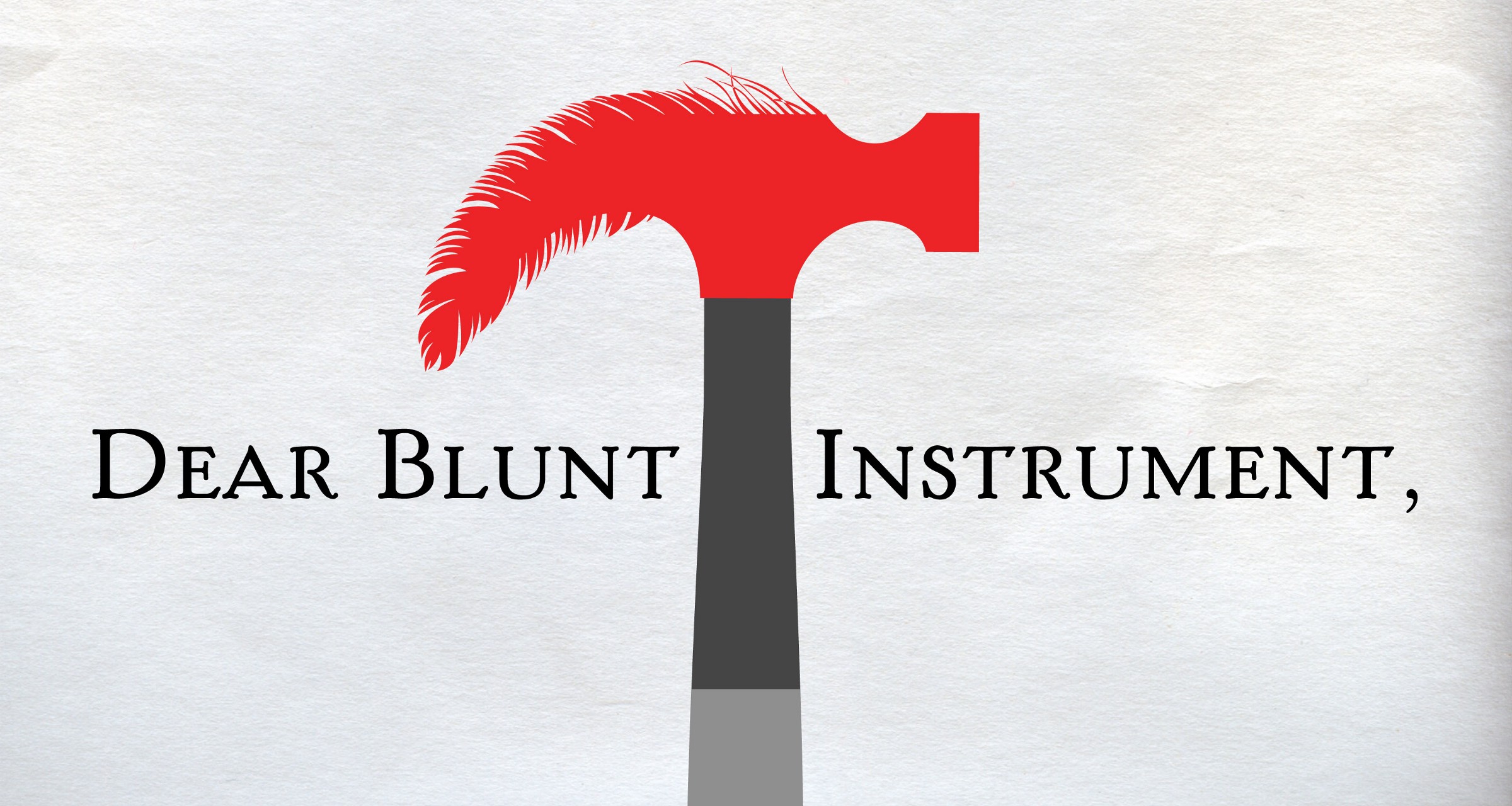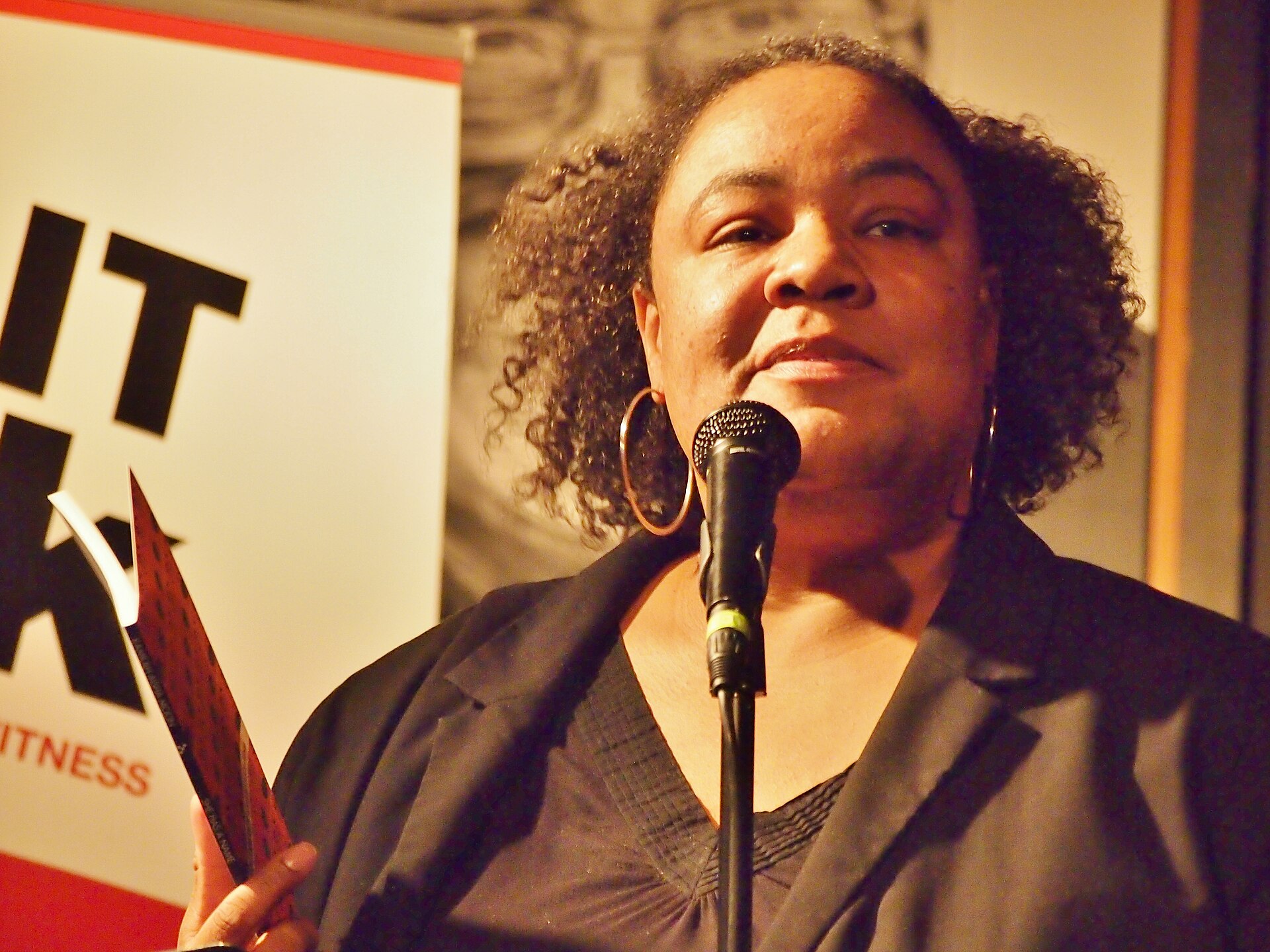interviews
Are Literary Contests Worth It? The Blunt Instrument on When and How to Publish Your First Book

The Blunt Instrument is a monthly advice column for writers. If you need tough advice for a writing problem, send your question to blunt@electricliterature.com.
Dear Blunt Instrument,
I finished my debut manuscript of poems about three years ago, and the poems in it have appeared in a number of well-regarded literary magazines. I am confident that it will be a good book, confident even that it might sell some copies. But — and here is my question — when?
Since its completion, I have sent my manuscript to over 35 first book contests and open reading periods, at all levels of competitiveness. It’s been a finalist for multiple big-deal contests, including the National Poetry Series, but has also been unkindly rejected from a number of smaller presses. I just can’t seem to find the right fit.
I have two main concerns: First, how do I know if the manuscript is actually as ready for publication as I think it is? Do I just keep trying until someone agrees with me? Do I put it away for a few years and hope either my sensibility or the universe’s changes?
Second: cost. I’ve been working at the best job I can find since graduating from my MFA, but it’s still barely enough to cover the essentials — never mind my student debt. For how long can a person justify spending $25, $30 a pop on submission fees to chase a dream? And — I don’t suppose — is there any chance those fees will one day be a thing of the past?
I believe in my work, in this manuscript, but how long should a person wait?
– Frazzled 28-Year-Old Poet
Dear Frazzled,
Because your manuscript has been named a finalist multiple times, and because most of the poems have been published, I suspect the book is ready or close to ready to be published; I suspect that your manuscript could be chosen for publication at any time. (This doesn’t mean you can’t continue to work on it, in the meantime, and make it better, but “ready” and “better” are both judgment calls.)
The problem is, “any time” could be this year or it could be a decade from now. There’s a lot of luck and random circumstance involved in who wins contests. It’s not like it’s a pure meritocracy; judges and editors have their own tastes and biases, and winning a contest is a matter of matching up with a judge or editor whose tastes align better with your manuscript than anyone else’s in the pool of probably hundreds of other manuscripts. That’s not easy. Editors are also looking for something that fits the aesthetic of the press, and are subject to whims. I know a poet who was sending out the same two manuscripts to contests and open reading periods, without luck, for about ten years before he won the National Poetry Series — two years in a row. Crazy, but true.
The other problem is, in the meantime you’re spending hundreds of dollars a year on contests. Whether or not you want to continue to do this — letting hundreds turn into thousands with no guarantee of a return — is really up to you. Do you feel it’s worth it? If, in five years, you win the National Poetry Series, will those hundreds in fees feel immaterial? If you think that’s the case, you could look at the entry fees as something analogous to dues — the cost required to remain a member of the poetry “club.” It’s unfortunate that there’s a cost involved, but most artistic endeavors do cost money — for writers, the cost of making the art itself is almost nothing, which is not the case for, say, a pianist or an oil painter.
As for whether submission fees will soon be a thing of the past, I strongly doubt it. Are they ethical? In the sense that they represent a class-based barrier to entry, no, they are not. (Lincoln Michel recently shared some interesting thoughts on the ethics of submission fees, but focusing more on literary journals than book contests per se.) But most poetry presses wouldn’t be able to survive without regular fundraising; the contest model basically fundraises through fees, versus, say, crowdfunding. Both models have problems, but again, most poetry presses don’t have the luxury of paying for their low-selling titles with a few big bestsellers.
Regardless, you don’t have to pay reading and entry fees if you don’t want to. You do have other options. I’m going to talk through three.
* One option is just to focus your efforts on open reading periods without a fee. Since this narrows down the number of presses you can send to, it could take longer to get a “yes,” and this may not be a viable option if you work in academia and are feeling pressure to publish as soon as possible.
* A second option is to self-publish. This option has plenty of disadvantages — many people will take your book less seriously; it will be harder to get reviews; publicity is entirely up to you; etc. But the advantage is, the money you spend will definitely result in a book, and you’ll have complete control over the timing, process, and outcome. I know multiple poets who have gone this route, some with surprising success.
* The third option is the one I would strongly recommend, not just to you but to poets everywhere, and that’s to try to develop a relationship with a publisher.
Years ago, before I had published any books or even a chapbook, I used to read a blog that featured a series of interviews with poets about their first books. The interviewer, Kate Greenstreet, asked each poet the same set of questions; one was to share the best advice they had received when trying to publish their first book. One poet said that a mentor had told her, “You already know who is going to publish your first book.” I have repeated this sentence, word for word, to many poets over the years: You already know who is going to publish your first book.
Being a known poet in the world takes more work than just writing poems. There’s a community aspect that you’re almost required to take part in, whether in person or online or both. This community work includes stuff like going to poetry readings, actively meeting and befriending other poets, reading other poets’ work and talking about it, and reading and writing poetry reviews. If you’re not doing at least some of these activities, it’s going to be harder and take longer for you to publish a book. The more of it you do, the more likely it is that you’re going to meet someone who might be interested in publishing your book (or someone who knows someone who might be interested in publishing your book).
One of the beautiful things about poetry is the proliferation of small presses. Because poetry books so infrequently make the author any money, there’s no compelling reason not to publish your book (especially your first book) with a small press. And small press editors are often more deeply involved with editing and promoting their books, since they are generally labor-of-love operations, compared to university presses, which usually have more funding and more staff turnover. (That funding is actually a double-edged sword; it means they can afford to be less invested in the outcome of any individual book.) Do some investigative work — what small presses are publishing books that you love? Avoid getting into the desperation mindset where you just want a book and don’t care who does it — your experience will be very different depending on who does the book. So who do you really want to publish it with? Having a “dream press” in mind may even help you figure out if your book is really “done” or not, since you’ll be editing toward a specific aesthetic rather than trying to please every possible editor/judge. Plus, if you work with an editor who knows you, you’ll likely decide together when it’s done.
Since you have an MFA and are actively publishing your poems, you’ve probably already met some people who run or work at poetry presses. Again, this is part of the work, so just keep at it. Read, write, build your community, and find your fans. Crucially, don’t get impatient. 28 is not old, and no one is entitled to a book. If there are people out there who would love to read your book, then eventually you’ll find the person (you might already know them!) who is going to publish it.
The Blunt Instrument









